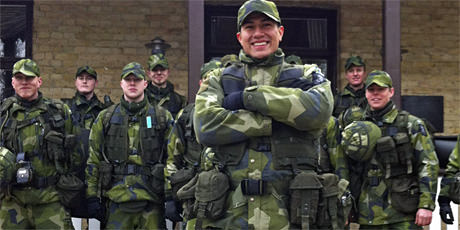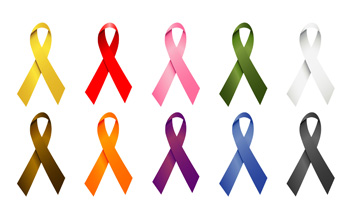Swedish News:
Swedes: More concerned with xenophobia than immigration. Four in 10 want conscription back. Cancer: Genetics vs environment.
-
 More Swedes worry over the increasing xenophobia than immigration in society, according to a new study from the SOM Institute at Göteborg University.
More Swedes worry over the increasing xenophobia than immigration in society, according to a new study from the SOM Institute at Göteborg University. -
-
Swedes: More concerned with xenophobia than immigration
More Swedes worry over the increasing xenophobia in society than immigration, according to a new study from the SOM Institute. Researchers Linn Sandberg and Marie Demker looked at what Swedes experience as generally worrying when confronting the future, and the result is that 78 percent believe an increased xenophobia is worrisome, while 49 percent are more worried about increased immigration, and 61 percent are worried about an increased number of refugees. “The negative attitude to xenophobia is probably an effect of the issue being high on the agenda the past two, three years,” says Marie Demker, professor of political science. Among other things, the study mentions the recent growth of right-winged extremist parties in Europe, the Sweden Democrats’ entrance into the parliament and immigration related issues taking place in the political debate prior to the fall election. Heléne Lööw, associate professor of history with a focus on right-wing extremism, at Uppsala University, is not surprised by the study: “This image has existed earlier in history — people are afraid that xenophobia will increase as the number of refugees increase. Many people are afraid of conflicts, especially in intermediate areas, and many probably remember the events in Kärrtorp (there was a Neo-Nazi attack in 2013) and are afraid of more fights and street riots.” The study also shows that the fear of immigration and refugees is less common in the big cities. “Of course issues and unnecessary conflicts come up in a small society where the population increases by perhaps 10 to 15 percent through immigration. Issues and conflicts that often were caused by not talking about what a reception should be like. It may be practical issues like a lack of housing plans. In a big city, these resources can be obtained, but in a smaller place it creates anxiety and people feel overwhelmed,” says Lööw. -
 Threats from Russia have raised security concerns in Sweden. An earlier survey revealed four in 10 Swedes want to reintroduce compulsory military service (it was abolished in 2009). Photo courtesy of forsvarsmakten.se
Threats from Russia have raised security concerns in Sweden. An earlier survey revealed four in 10 Swedes want to reintroduce compulsory military service (it was abolished in 2009). Photo courtesy of forsvarsmakten.se -
-
Four in 10 want conscription back
Between 1901 and 2010, Sweden had universal conscription for men. In the summer of 2009, Parliament decided to vote to abolish compulsory military service in peacetime, and it was replaced with voluntary basic army training. Now four in 10 Swedes want to reintroduce conscription and the support is much stronger among Center Party voters, Moderates and Christian Democrats than among Social Democrats and Left Party voters. This according to the Som Institute at Göteborg University. “Normally, defense issues follow a right-left division, but in this particular issue it doesn’t. To some extent this is a rejection of the defense policy that we currently have,” says Joakim Berndtsson, who is behind the study, in a press release. He is surprised by the result, since it was the government parties, which abolished conscription, while the opposition was against that. -
 A new study in Sweden shows that genetics play a bigger part than environmental factors in the three most common types of cancer.
A new study in Sweden shows that genetics play a bigger part than environmental factors in the three most common types of cancer. -
Cancer: Genetics vs environment
Genetics play a bigger part than environmental factors in causing the three most common types of cancer in Sweden. Scientists from Lund University and Region Skåne have followed 70,000 Swedish-born adopted persons, of whom some had contracted breast-, prostate-, or colorectal cancer between 1958 and 2010. Their risk of getting cancer was then compared to the incidence of cancer in their parents — biological as well as adoptive. The result shows that genes play a bigger part than lifestyle when it comes to family presence of cancer, says associate professor Bengt Zöller, leader of the project. “We know lifestyles play a part, but in our study biological factors explain the occurrence of our most common cancer types to a higher degree.” The study also shows that the person with a genetic inheritance is diagnosed at a younger age than others.
The most common types of cancer in Sweden are: prostate cancer, breast cancer, colorectal, skin and lung cancer. Both genes and lifestyle factors may cause the disease.Cancer is a genetic disease, though that doesn’t mean it is hereditary. Unhealthy food, smoking, sun and alcohol may cause cancer. Radioactive substances or X-rays in high doses may also cause cancer. -
-
